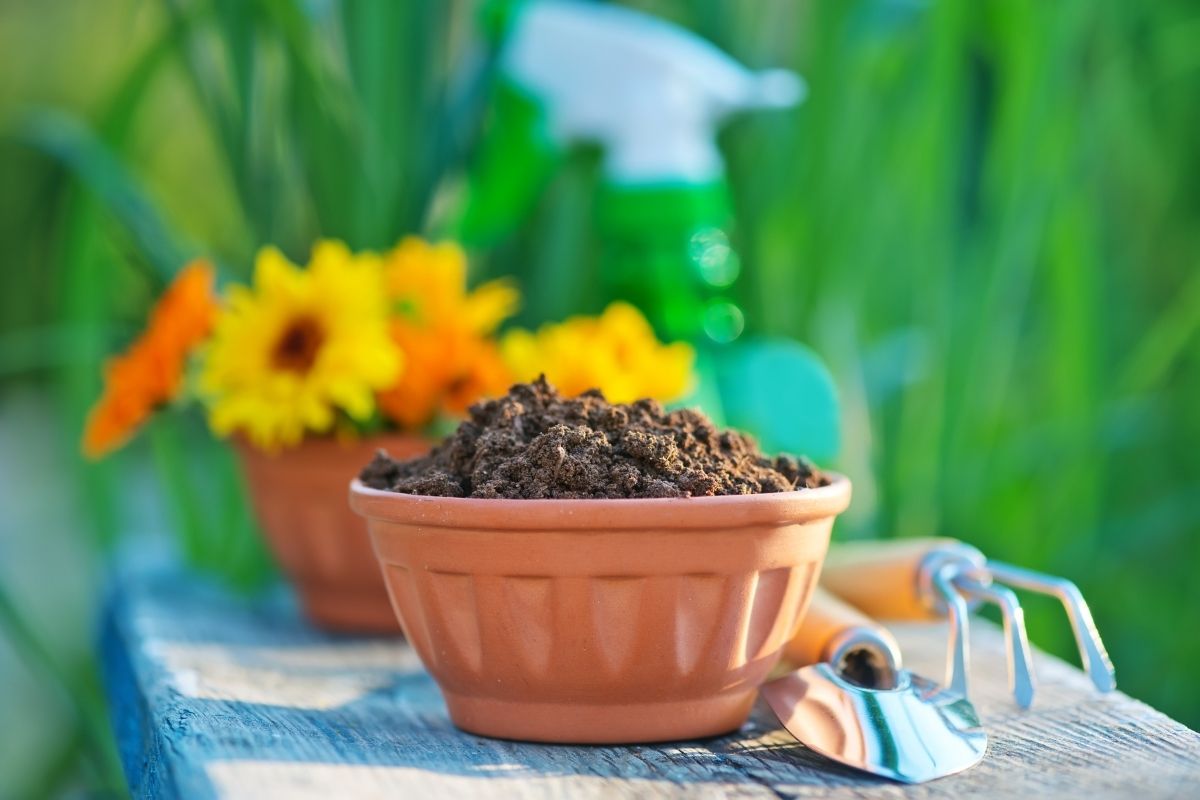Gardening 101: Can You Use Compost As Soil?
Do some gardeners have an innate knack for plant care? Yes. More often than not, though, a green thumb is really just a wealth of knowledge and experience.
Much of that knowledge revolves around garden soil and how it affects the plants housed within. And knowing when to use soil or compost for plant health is something even experienced gardeners sometimes struggle with.
You can technically use pure compost or soil for planting. But the best results come from using a balanced mix of both.
Keep reading to learn how to achieve the perfect balance of compost and soil for your garden!
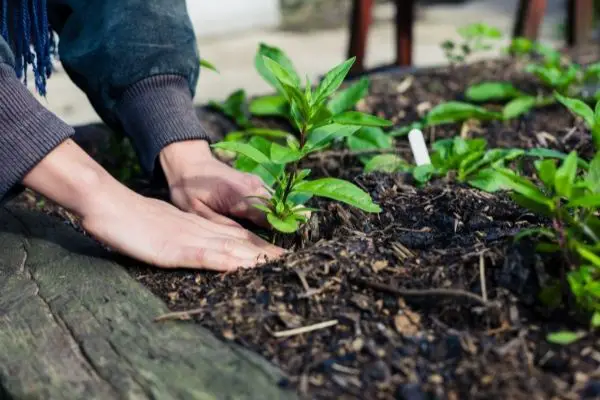
What is Soil?
Ecologically, soil is an extremely broad term. In short, it refers to everything that makes up “dirt” — inorganic minerals, decayed organic matter, bacteria, and other living organisms. Even air and water are considered to be part of soil.
While soil is the sum of many small pieces, these pieces can’t be identified without the help of a microscope and other laboratory equipment. To the average person, soil is one cohesive material.
With that said, not all soil is the same. Experienced gardeners are extremely familiar with this concept, as not all soil (even that which is naturally occurring) can sustain healthy plant life.
For example, some soil consists of inorganic materials like clay and little else. And some are made up almost entirely of decayed organic matter, such as the soil found in and around bogs.
What is Compost?
Compost is the end result of organic matter that has almost fully decomposed.
Healthy compost also contains water, oxygen, and a host of beneficial bacteria. It does not contain inorganic materials like sand or clay.
The term is most commonly applied to decomposed material that is created from household food scraps, lawn debris, and animal waste. But any decomposed organic material can be turned into compost. Even human waste can be composted using a specialized toilet system.
Compost meant for fertilizing can be purchased by the bag or made at home.
Some people use “compost” to refer to all organic fertilizers. However, only some of these fertilizers actually qualify as compost from an ecological point of view.
Can You Use 100% Compost for Planting?
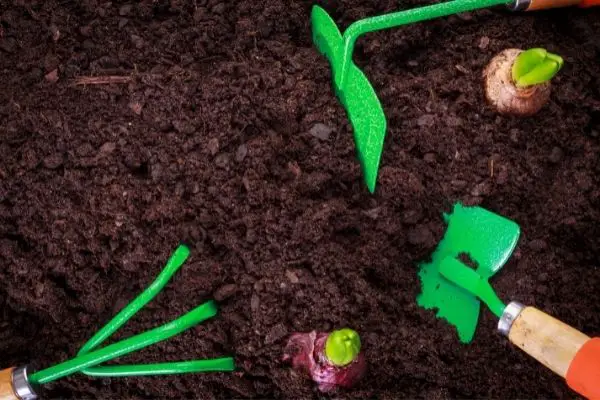
Can compost be used as soil? Yes. But that doesn’t mean it should.
Most people, even non-gardeners, know that compost is good for plants. So planting in pure compost should result in a bigger and healthier garden than you’d get from regular soil, right?
Wrong.
Using compost as soil might provide all the organic nutrition your garden could ever need. But it lacks the inorganic materials plants rely on to survive.
It’s also very possible to supply your garden with too much of those organic nutrients in the first place.
The phrase “too much of a good thing” definitely holds true when it comes to using compost in the garden!
4 Reasons Not To Use Compost As Soil
1. Water Retention
Compost cannot hold onto water the same way balanced soil can. At best, planting in compost will require more frequent watering. At worst, the plants will quickly dry out and die.
2. Nutrition
Compost contains high amounts of key nutrients, including nitrogen, phosphorus, and potassium. These are necessary to sustain plant life.
However, like people, the type of nutrients available is only half of the equation. You also need to ensure your garden is not getting too much or too little of each.
Compost, especially that made from animal waste, tends to be very high in phosphorus.
When mixed with regular soil, this phosphorus is well-distributed and overall beneficial. Using pure compost can cause an “overdose” of phosphorus.
Not only can this expose your plants to an excess of phosphorus. It can also decrease the levels of other essential nutrients, causing damaging deficiencies.
3. Pests
The high concentration of organic matter in compost is a buffet for insects and other pests. Using compost instead of topsoil is likely to increase the number of potentially harmful pests in and around your garden beds!
4. Erosion
All soil erodes. But pure compost erodes extremely quickly.
Rapid erosion can expose your plants’ roots to the elements. It’s also damaging to the environment in general.
An important note: The right balance of natural soil and compost can actually decrease the rate of erosion. There’s no need to avoid using compost as a soil amendment for fear of worsening environmental erosion!
How To Use Compost as a Soil Amendment
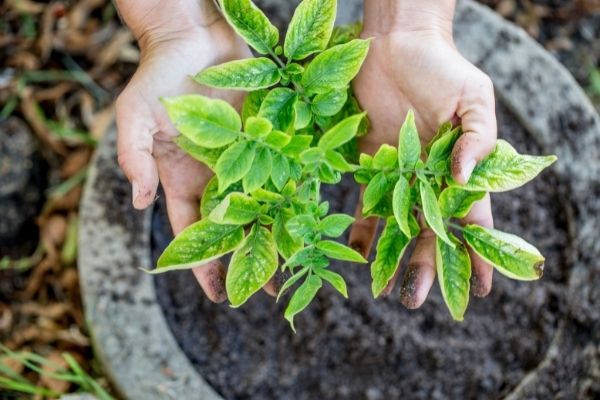
There are few, if any, scenarios when using pure compost for planting is the best option. That doesn’t mean you should stop using compost altogether!
The secret to a healthy garden is balance. Balance in watering. Balance in sunlight. And balance in the soil.
Compost is just one factor in achieving the ideal soil composition.
The easiest method for adding compost to your garden is to spread the material on top of the existing soil. You can gently mix the compost and topsoil if desired but it’s rarely necessary.
Most gardens do best with 2 inches of compost spread over the existing soil. This is just a general rule — your garden may benefit from more or less compost depending on its needs and the native soil composition.
Avoid replacing more than 30% of your garden soil with compost. Container gardens should contain no more than 25% compost.
Apply compost annually until you know how your garden responds. Less or more frequent applications may yield better results in some cases.
Frequently Asked Questions
Can you use compost as topsoil for grass?
Yes! Compost works great for topdressing when reseeding or otherwise maintaining your lawn.
Placing a small amount of compost over your lawn won’t smother or over-fertilize the grass (as long as you don’t add too much). Instead, the compost and all of its nutrients will slowly seep into the existing soil and eventually reach the grass roots.
This process supplements the top layer of soil AND fertilizes your lawn all in a single step. As always, you should not use compost to completely replace your lawn’s soil.
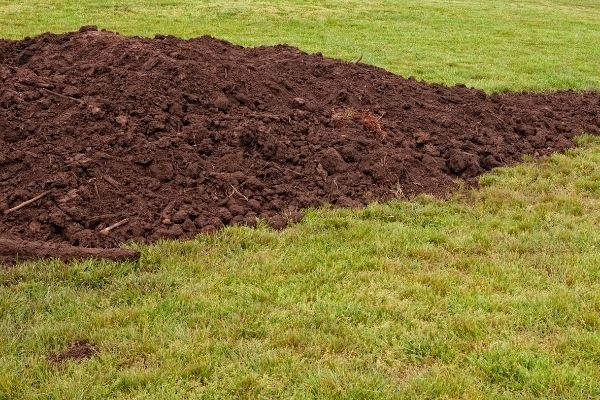
Can you use compost with potting mix?
Yes, compost can be used to fertilize potted plants and container gardens! You can mix together compost and potting mix before planting. Or supplement the container with compost throughout the plant’s lifetime.
Keep in mind that it’s easier to over-fertilize a container than it is a regular garden bed. Stick to a conservative schedule (add compost every 1 to 2 months during the active growing season) and watch for signs of over-fertilization.
Are compost and manure the same thing?
The term “manure” technically refers to any organic fertilizer. Based on this definition, compost is a type of manure.
In practice, though, “manure” is most often used to describe fully or partially decomposed animal feces. This material may be used independently as a soil amendment or mixed with traditional compost to create a dense fertilizer.

